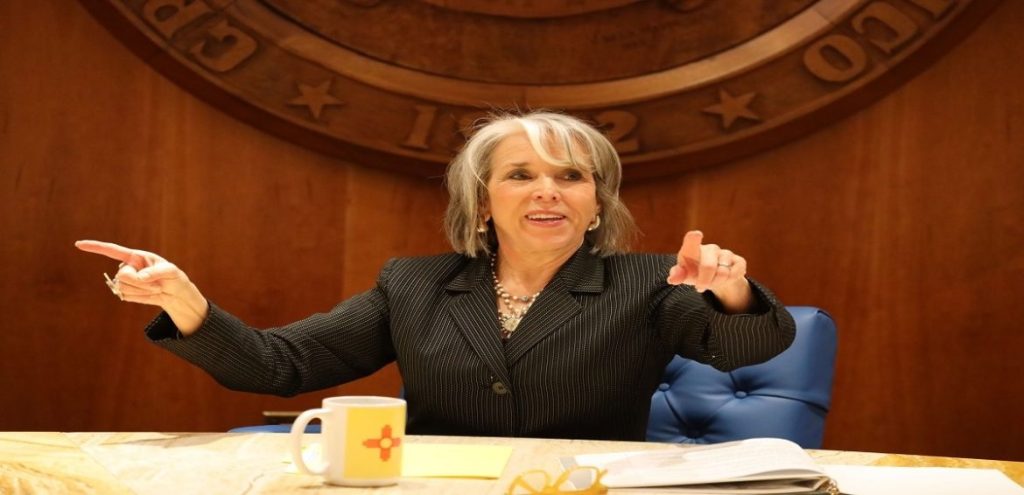New Mexico Becomes First U.S. State to Offer Free Childcare for All Residents
A groundbreaking statewide program aims to fight poverty, boost education, and support working families through universal childcare access.

New Mexico on Saturday became the first U.S. state to offer free childcare to all residents, in an ambitious effort to strengthen its economy and improve early education and childcare—areas where the state has long ranked among the worst in the nation.
Under the new program, families—regardless of income—can receive government vouchers to cover childcare costs in both public and private sectors. The initiative marks the culmination of years of effort since the governor and state legislature established the Early Childhood Education and Care Department in 2019.
This rollout comes as other Democratic-led states, cities, and counties explore similar popular measures for working families. For example, Connecticut recently passed a bill offering free childcare to families earning less than $100,000 annually, and capping costs at 7% of income for higher earners. In New York City, mayoral candidate Zohran Mamdani has also proposed universal free childcare.
Major Savings for Families
For many families, the financial relief is transformative. Allison O’Brien, a special education teacher from Taos, expects to save about $12,000 a year in childcare costs for her two-and-a-half-year-old son, Otis. She and her husband, Sean O’Kelly, a truck driver, earn well below the previous maximum income eligibility—about $129,000 for a family of four.
“We’ll finally be able to take a vacation and won’t have to choose between paying bills,” O’Brien said. “We won’t have to ask whether we should pay for propane or the mortgage.”
To achieve fully universal coverage, New Mexico estimates it will need to create about 14,000 new childcare jobs and hire 5,000 teachers, according to the Democratic-led state government. It is also establishing a $12.7 million low-interest loan fund to build and expand childcare facilities.
Additionally, the state has raised pay rates for providers to $18 an hour minimum, significantly higher than the state’s $12 minimum wage, especially for full-time care staff.
Allison McPartlon, director of the University of New Mexico–Taos Childcare Center, said the waitlist is so long that some children are not admitted until kindergarten. “The higher reimbursement rates will help us keep and hire teachers,” she said, calling the shift toward universal care “remarkable.”

Addressing Poverty
Governor Michelle Lujan Grisham told reporters that childcare is “the backbone of creating a family support system that allows parents to work, go to college, and do everything necessary to lift New Mexico out of poverty.”
Nearly 18% of New Mexicans live below the poverty line, according to U.S. Census data, making it one of the poorest states. Despite being slightly larger than the United Kingdom, New Mexico’s population is only 2.1 million. The universal childcare program will be funded mainly by revenue from the oil and gas industry, the second-largest in the U.S.
Research shows that quality childcare improves educational outcomes, especially for low-income families, said Philip Fisher, professor of early childhood learning at Stanford University. Studies by Neal Halfon, a pediatrician at UCLA, found that reading levels among New Mexico’s students fall below the national average by ages eight or nine.
For decades, the state ranked last in both education and child well-being.
A Model for the Nation
With this new decision, New Mexico joins countries such as Norway and Belgium, which offer universal free childcare for children under three, and Bulgaria, where early childhood education is free until primary school. But New Mexico goes further—offering free childcare up to age 13.
Critics, however, question the fairness of extending free childcare to wealthy families. Republican state representative Rebecca Dow argued that affluent households can already benefit from federal childcare tax credits included in former President Donald Trump’s “One Big Beautiful” bill.
Dow, who runs a childcare center herself, added that research shows “the best place for a young child is at home,” and that the state should instead offer tax credits for stay-at-home mothers. She warned that the universal approach “will drain resources and leave people disappointed.”



